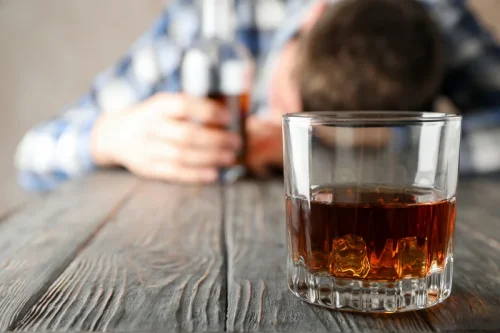
In the context of sugar and addiction, sugar triggers dopamine release in a similar way to addictive drugs, making high-sugar foods more rewarding and pleasurable. This can be particularly tempting for people with a substance use disorder whose dopamine reward networks have been compromised by addiction. Some research indicates that methamphetamine use can reduce blood glucose levels³, driving people toward sugary foods or drinks. In addition, the appetite suppressing properties of stimulants make eating nutritious foods less likely. Some people in recovery use high sugar foods as a survival strategy to get sufficient calories when other foods are unpalatable.
Unveiling Effective Inpatient Rehab Guidelines
As a result, individuals in recovery from alcohol abuse may experience cravings for sugar, as they become tolerant to sugar due to their alcohol intake. However, it is important to be cautious, why do alcoholics crave sugar as excessive sugar intake can replace alcohol cravings and potentially lead to sugar addiction. For individuals in recovery from alcoholism, cravings for sugar can be a common occurrence.
Your Brain Is to Blame for Cravings
But not nearly enough of us realize how connected our sleep habits are to our sugar cravings. As you build a balanced diet, be aware that there are added sugars lurking in most highly processed foods. But self-reflection and an honest conversation with a healthcare provider is the best way to start to get a handle on the issue. On the topic of mood, both sugar and alcohol are known to affect serotonin, one of the body’s main “feel-good” hormones.
What foods and vitamins are beneficial for recovering alcoholics?
- Discover how intensive outpatient intensity structure aids recovery, with research-backed insights and strategies.
- Embarking on the road to sobriety shouldn’t be a lonely endeavor, and managing any emerging sugar cravings isn’t an exception.
- Understanding these factors can help individuals in recovery better manage their sugar cravings.
These resources can help individuals navigate the challenges of recovery and develop strategies to overcome cravings. Additionally, addressing any emotional or psychological factors that contribute to sugar cravings through therapy or counseling can be beneficial. Understanding the factors that contribute to sugar cravings in recovering alcoholics can provide insights into why these cravings occur.
Holistic Approaches to Recovery
High sugar intake can result in addictive-like behaviors in individuals, including cravings and a loss of control over consumption. This addictive nature of sugar can be particularly problematic for alcoholics, as it may exacerbate their struggles with alcohol use disorder [2]. This addictive nature of sugar can be particularly problematic for alcoholics, as it may exacerbate their struggles with alcohol use disorder.
Common Questions on Sugar and Alcoholism
- Dopamine and serotonin are two neurotransmitters in the brain that are responsible for regulating mood, motivation, and reward.
- For individuals with hypoglycemia unawareness, drinking alcohol can be particularly risky.
- When an individual consumes alcohol, these neurotransmitters are stimulated, leading to feelings of pleasure and satisfaction.
- Both physiological and psychological factors contribute to this phenomenon, making it a complex issue that requires a comprehensive approach to manage effectively.
Explore how cognitive behavioral therapy can effectively treat alcohol addiction and foster long-term recovery. Discover what is the hardest drug to quit, understand addiction, and explore the journey to recovery. These spikes and crashes make sugar cravings incredibly common in early recovery from alcohol use disorder. People who abruptly stop drinking may lose a significant source of their calorie intake and have disrupted their body’s blood sugar regulation. Alcohol addiction can have significant effects on an individual’s nutrition, often leading to malnourishment and deficiencies in both macro and micro-nutrients. This can result in individuals being overweight or underweight due to years of poor nutrition from alcohol consumption.
Recovering from alcohol addiction can be a challenging journey, and one aspect that often comes up is the craving for sugar. Understanding the coping mechanisms that individuals employ during this time can shed light on why seeking comfort and reducing stress are common responses. These nutrient deficiencies can trigger sugar cravings as the body seeks a quick source of energy to compensate for the lack of essential nutrients.
The Relationship Between Alcohol and Sugar

With the right strategies and support, individuals in recovery can effectively manage these cravings and make significant strides towards recovery. Alcohol and sugar addiction often go hand in hand due to their shared impact on the brain’s reward system, specifically the release of dopamine. People susceptible to alcohol addiction are more likely to develop sugar addiction as well.

Sugar Consumption Patterns in Alcohol Recovery

Regular alcohol drinkers can become tolerant to sugar from their alcohol intake, leading individuals in recovery from alcohol abuse to experience cravings for sugar. Like alcohol and drugs, sugar impacts the same region of the brain, stimulating the brain’s pleasure center, and can potentially lead to a similar cycle of addiction. Addressing the root causes of sugar cravings in recovering alcoholics https://ecosoberhouse.com/ through proper nutrition, hydration, and overall health is crucial. By focusing on a well-rounded diet that includes a variety of nutrient-dense foods, individuals can satisfy their cravings while nourishing their bodies. Incorporating a balance of fruits, vegetables, whole grains, lean proteins, and healthy fats can provide essential nutrients and help stabilize blood sugar levels.
Many individuals in recovery from alcohol addiction turn to sugar as a means of seeking comfort and soothing themselves. Alcohol and sugar both have the potential to activate the brain’s reward system, leading to feelings of pleasure and temporary relief from stress or emotional discomfort. This overlap in the brain’s response can make sugar an appealing substitute for alcohol.
TAGS:





























